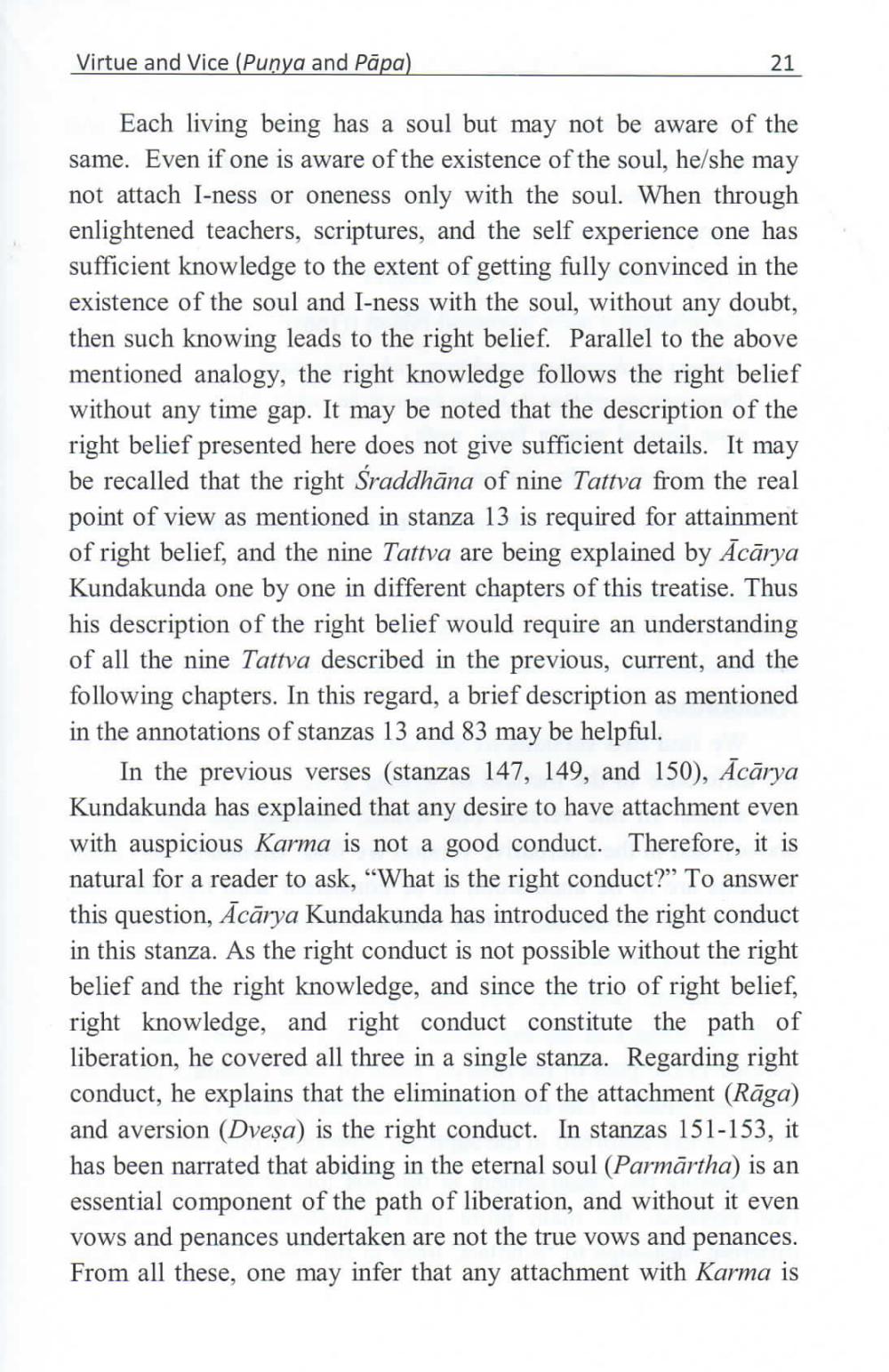________________
Virtue and Vice (Punya and Papa)
Each living being has a soul but may not be aware of the same. Even if one is aware of the existence of the soul, he/she may not attach I-ness or oneness only with the soul. When through enlightened teachers, scriptures, and the self experience one has sufficient knowledge to the extent of getting fully convinced in the existence of the soul and I-ness with the soul, without any doubt, then such knowing leads to the right belief. Parallel to the above mentioned analogy, the right knowledge follows the right belief without any time gap. It may be noted that the description of the right belief presented here does not give sufficient details. It may be recalled that the right Śraddhāna of nine Tattva from the real point of view as mentioned in stanza 13 is required for attainment of right belief, and the nine Tattva are being explained by Acārya Kundakunda one by one in different chapters of this treatise. Thus his description of the right belief would require an understanding of all the nine Tattva described in the previous, current, and the following chapters. In this regard, a brief description as mentioned in the annotations of stanzas 13 and 83 may be helpful.
21
In the previous verses (stanzas 147, 149, and 150), Acārya Kundakunda has explained that any desire to have attachment even with auspicious Karma is not a good conduct. Therefore, it is natural for a reader to ask, "What is the right conduct?" To answer this question, Acarya Kundakunda has introduced the right conduct in this stanza. As the right conduct is not possible without the right belief and the right knowledge, and since the trio of right belief, right knowledge, and right conduct constitute the path of liberation, he covered all three in a single stanza. Regarding right conduct, he explains that the elimination of the attachment (Rāga) and aversion (Dveșa) is the right conduct. In stanzas 151-153, it has been narrated that abiding in the eternal soul (Parmārtha) is an essential component of the path of liberation, and without it even vows and penances undertaken are not the true vows and penances. From all these, one may infer that any attachment with Karma is




